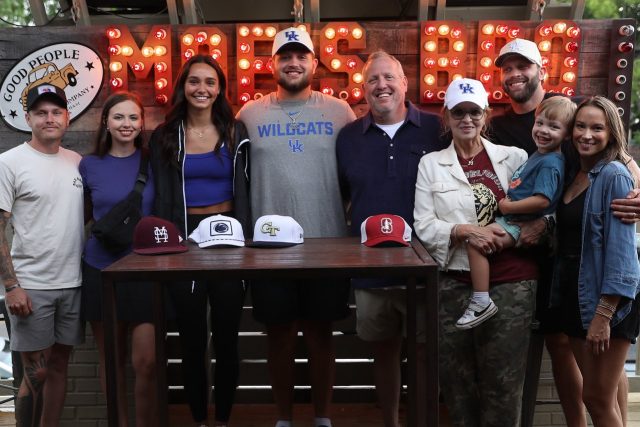Judge to weigh if evidence allowed in explosives case
Published 9:43 pm Saturday, November 5, 2016

- Trey A. Gwathney-Law
Statements that Franklin Police Department officers obtained from a teenager who reportedly threatened to blow up Franklin-Simpson Middle School and five alleged Molotov cocktails police seized as part of the investigation may not be allowed into evidence if a federal judge decides officers unlawfully obtained the items.
Trey Alexander Gwathney-Law, 19, is charged in U.S. District Court with possessing an unregistered firearm, making a firearm, attempting to damage and destroy a building by means of fire or explosive and possession of firearms in furtherance of a crime of violence.
Trending
If convicted as charged, Gwathney-Law could spend the rest of his life in prison.
Gwathney-Law was arrested Sept. 27, 2015, at his residence after Franklin police officers acted on a tip that Gwathney-Law had several explosive devices and made comments about using them to blow up the middle school.
Police searching a shed on the property found inside a stove and seized four glass bottles that contained rags sticking out of them and a fifth bottle that had a green fuse sealed with some type of substance melted onto the bottle, according to court records.
The bottles were filled with a dark gas/oil liquid mixture, court records show.
Patrick Bouldin, Gwathney-Law’s court-appointed attorney, filed a motion to suppress all statements his client made to police along with the evidence police seized, arguing that the police actions violated Gwathney-Law’s rights.
A suppression hearing was held in August in Bowling Green, at which two FPD officers testified about their actions. Body camera footage taken by officers during the incident was also viewed during the hearing.
Trending
On Wednesday, Assistant U.S. Attorney Jo Lawless filed a brief supporting the prosecution’s position that police acted lawfully during their time at Gwathney-Law’s residence, while Bouldin filed his response Friday.
Lawless argues that police obtained consent from Gwathney-Law’s mother to search the shed behind their residence and Gwathney-Law accompanied the officers to the shed, stating that the body cameras show that consent had been granted to police.
Bouldin counters that the consent was not validly given to police, who arrived without a search warrant or a written consent form for the residents to sign.
“At the front door, the police only asked if they ‘could look in the shed,’ “ Bouldin said. “The police did not mention the stove inside the shed, nor did they ask for consent to search the stove. The police also did not inform anyone that they could refuse to consent to any search.”
Bouldin also argues that Gwathney-Law was not correctly advised of his rights by Franklin Officer Serhiy Varyvoda, and because Gwathney-Law was not free to leave, he was under custodial interrogation and his statements should be suppressed.
In Bouldin’s brief, he contends that Varyvoda attempted to recite the Miranda warning to Gwathney-Law from memory but did not advise Gwathney-Law of his right to have an attorney present during questioning.
“While an officer may not have to recite Miranda warnings exactly verbatim, the officer must still advise the suspect of the correct substance of the Miranda warnings, including the right to counsel during questioning – and not just a vague right to counsel at some unknown point,” Bouldin wrote.
Lawless holds the position that law enforcement adequately advised Gwathney-Law of his rights and that Varyvoda “addressed all the major points” in doing so.
Gwathney-Law also understood his rights, waived them and talked to police, Lawless argues.
“Officer Varyvoda clearly advised Gwathney-Law of his constitutional rights,” Lawless states in her brief. “Gwathney-Law told the officer he had heard the rights before on ‘Law and Order’ (a television show). He also stated that he understood his rights … he engaged in conversation with Off. Varyvoda on a wide range of topics. Nothing in the body camera video revealed any lack of understanding on Gwathney-Law’s part. At no point in time – prior to his arrest – did he ask to speak with an attorney (or anyone else for that matter). At no point in time – prior to his arrest – did he indicate a desire to stop talking to law enforcement.”
— Follow courts reporter Justin Story on Twitter @jstorydailynews or visit bgdailynews.com.






